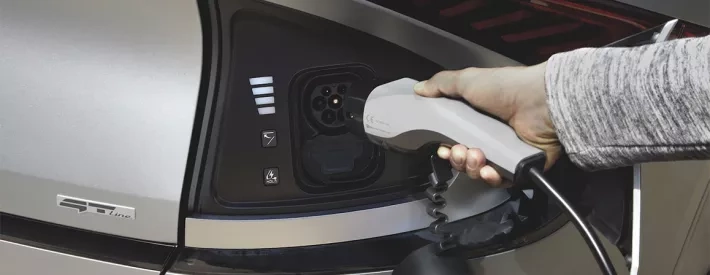Why government EV investment may not be enough

EV and plug-in hybrid sales are on the rise, and the government is investing more in infrastructure, but not everyone thinks politicians are doing enough to prepare the market
We’ve all heard it, the road to 2030 and the ban on sales of new petrol and diesel vehicles with the vehicle parc slowly replaced with electrified vehicles. But the journey could be more challenging than many think.
Andy Alderson, founder and CEO of online leasing brand Vanarama, has seen orders for electric cars skyrocket by more than 1,000% in 2021 and more than double since fuel shortages began in late September. The online leasing marketplace now processes an average of 55 pure-electric vehicle orders every day and expects to deliver more than 20,000 EVs to customers in the next calendar year.
The huge surge in consumer demand for EVs is in danger of outpacing the roll-out of public charge points, and the government’s £620 million investment as part of its Net Zero Strategy may not be enough.
Alderson is worried about a failure to accelerate investment risks stalling the switch from internal combustion cars, putting the goal to end the sale of all petrol and diesel cars by 2030 at risk. (And this is added to the concerns at the IMI that not enough Technicians will be trained and ready to work on the EVs hitting the roads as numbers build).
Alderson says: “The Government needs to act and act quickly if it is to remain on course for its Net Zero targets.
“We are seeing massive demand for electric vehicles, and that demand is growing all the time. But if nothing is done to improve the availability of public charge points, we risk losing the momentum.
“Every car manufacturer has accelerated plans for electric vehicles, and it’s imperative that the government follows suit.”
A report issued earlier this week by independent transport research organisation New AutoMotive backs up Alderson’s assessment. It estimates that the UK will need between 230,000 and 280,000 public chargers by 2035 to meet demand. There are currently just 24,000.
Growing numbers
The report estimates that 40-50 charge points need to be installed across the country every single day to keep pace with current demand. This demand is such that a staggering 50% of all car orders made through Alderson’s Vanarama business are now for fully electric vehicles (62% including hybrid models). And across the year as a whole (2021 YTD), orders of electric cars are up a whopping 1011% on 2020 levels.
Current forecasts suggest the trend will continue to accelerate, with Vanarama expecting to deliver more than 20,000 all-electric models to customers in the calendar year 2022.
Alderson says: “We’ve been seeing electric vehicles grow in popularity for quite a few years now, but the pace of change since the pandemic and particularly since the fuel crisis has been off the charts.
“We now offer our customers a free home charging point with every EV order, and this, coupled with our years’-free insurance on every new car lease, makes switching to an electric vehicle more affordable than ever before.
“It’s hard to see this as anything other than the tipping point where motorists turn their backs on petrol and diesel and move to the lower running costs and zero tailpipe emissions of EVs.”
He adds: “The vast majority of EVs on the market today are more than capable of meeting the needs of the average driver, but the public charging infrastructure needs massive investment.”




